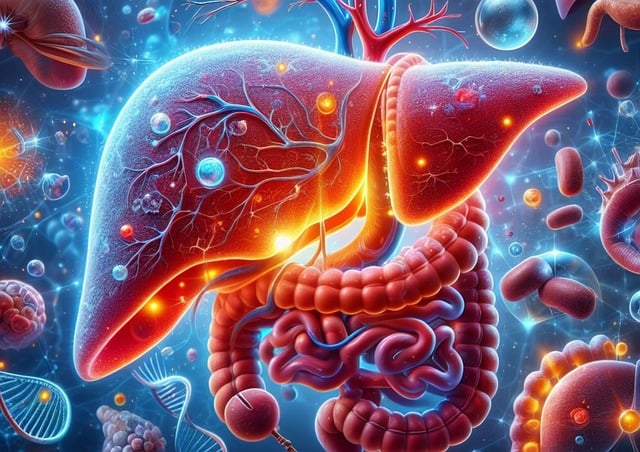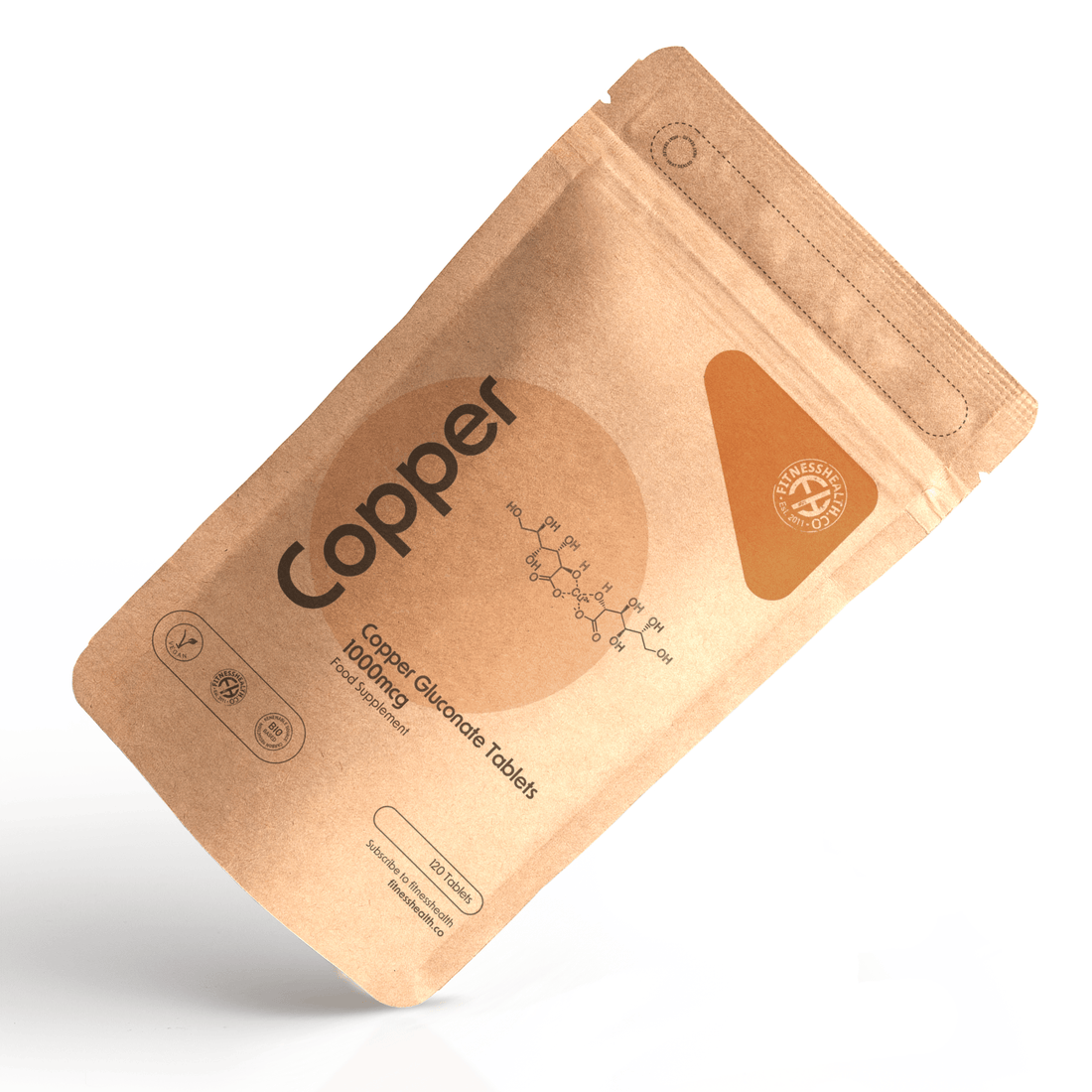Copper Tablet Supplementation: Benefits, Risks, and Scientific Evidence
Copper, an essential trace mineral, plays a crucial role in numerous physiological processes. While often overshadowed by more commonly discussed minerals like iron and zinc, copper supplementation has garnered increased attention in recent years. This article explores the scientific basis for copper supplementation, its potential benefits, associated risks, and evidence-based recommendations.

The Biological Role of Copper
Copper contributes to several essential bodily functions as a cofactor for enzymes involved in energy production, iron metabolism, neurotransmitter synthesis, collagen formation, and antioxidant defense. The adult human body contains approximately 100-150 mg of copper, primarily distributed in the liver, brain, heart, kidneys, and skeletal muscle.
Key physiological functions of copper include:
- Facilitating iron absorption and transport
- Supporting cellular energy production
- Contributing to connective tissue formation
- Protecting cells against oxidative damage
- Enabling proper nervous system function
- Assisting immune system response
Additionally, copper contributes to the normal function of the immune and nervous systems, as well as normal energy-yielding metabolism.
Copper Deficiency: Prevalence and Consequences
True copper deficiency is relatively rare in developed countries but can occur in specific circumstances:
- Malabsorption conditions (celiac disease, short bowel syndrome)
- Excessive zinc supplementation (which competes with copper absorption)
- Bariatric surgery
- Prolonged parenteral nutrition without adequate copper
- Certain genetic disorders (Menkes disease)
Research published in the American Journal of Clinical Nutrition suggests that subclinical copper insufficiency may be more common than previously thought, particularly among certain populations. A 2018 study found that approximately 25% of adults consume less than the recommended dietary allowance (RDA) of copper.
Clinical manifestations of copper deficiency include:
- Anemia resistant to iron therapy
- Neutropenia (low white blood cell count)
- Bone abnormalities resembling osteoporosis
- Neuropathy with symptoms similar to B12 deficiency
- Hypopigmentation of skin and hair
- Impaired growth in children
Copper deficiency can also affect normal iron transport, leading to anemia, and impact normal hair and skin pigmentation.

Potential Benefits of Copper Supplementation
Cardiovascular Health
Research published in the Journal of Nutritional Biochemistry indicates that adequate copper status may help maintain cardiovascular health. Copper helps protect cells from oxidative stress, which is crucial for maintaining cardiovascular health. A 2017 meta-analysis found that copper deficiency was associated with unfavorable changes in blood lipid profiles and increased oxidative stress markers.
Immune Function
Copper plays a vital role in immune system function. Copper also contributes to the maintenance of normal connective tissues, which is important for overall immune function. A 2020 review in the Journal of Trace Elements in Medicine and Biology concluded that copper supplementation might enhance immune response, particularly in individuals with marginal deficiency. Copper’s antimicrobial properties have also been recognized, with potential applications in fighting certain infections.
Bone Health
Emerging evidence suggests copper’s importance for bone metabolism. Using the chelated form of copper, such as copper bisglycinate, can enhance absorption and support bone health more effectively. A longitudinal study published in Osteoporosis International (2019) found that lower serum copper levels were associated with decreased bone mineral density. Copper supplementation may help preserve bone mass, especially when combined with other bone-supporting nutrients.

Neurocognitive Function
Copper is essential for brain development and function. Research in the Journal of Alzheimer's Disease has explored connections between copper homeostasis and neurodegenerative conditions. While the relationship is complex, maintaining optimal copper levels appears important for cognitive health throughout life.
Wound Healing and Tissue Repair
Copper's role in collagen formation makes it valuable for wound healing. A 2021 clinical trial published in Wound Repair and Regeneration demonstrated that topical copper preparations accelerated healing in chronic wounds, though oral supplementation effects were less pronounced.
Potential Risks and Side Effects
Despite its essential nature, excessive copper supplementation carries risks:
Gastrointestinal Distress
The most common immediate side effect of copper supplementation involves gastrointestinal symptoms. According to clinical reports, these typically include:
- Nausea
- Abdominal pain
- Diarrhea
- Vomiting
These symptoms usually occur at doses exceeding 3 mg daily or when supplements are taken on an empty stomach.

Chronic excess copper consumption can lead to copper accumulation in the liver. A 2016 study in the Journal of Hepatology documented cases of liver damage associated with long-term high-dose copper supplementation or exposure. Wilson's disease, a genetic disorder causing abnormal copper accumulation, exemplifies the potential hepatic consequences of copper excess.
Interactions with Other Nutrients
Copper competes with zinc and iron for absorption. When considering dietary supplements, it's important to be aware of potential interactions between copper and other minerals like zinc and iron. Research in the Journal of Nutrition indicates that high-dose copper supplementation may induce secondary deficiencies of these minerals. Conversely, high zinc intake can impair copper absorption.
Oxidative Stress
While copper functions in antioxidant enzymes, excess unbound copper can promote oxidative damage. A 2019 experimental study in Free Radical Biology and Medicine demonstrated that excessive copper exposure increased markers of oxidative stress in cellular models.
Special Population Considerations
Individuals with certain conditions face heightened risks:
- Wilson's disease patients must strictly avoid copper supplements
- Those with chronic liver disease may have impaired copper metabolism
- Individuals with specific genetic variants affecting copper transport proteins may respond differently to supplementation
Scientific Evidence and Dosage Recommendations
The current RDA for copper is:
- 900 μg/day for adults
- 1,000 μg/day for pregnant women
- 1,300 μg/day for lactating women
The tolerable upper intake level (UL) is set at 10 mg/day for adults.
A 2022 systematic review in Nutrients analyzed 28 randomized controlled trials of copper supplementation. The review concluded that:
- Supplementation effectively corrects deficiency in documented cases
- Prophylactic supplementation shows limited benefits in non-deficient individuals
- Effects vary based on baseline copper status, dosage, and supplement form
- Copper gluconate and copper bisglycinate appear to have better bioavailability than copper oxide
Chelated copper supplements, such as Solgar Chelated Copper, are known for their enhanced absorption and utilization by the body.
Most clinical studies have utilized doses ranging from 1-5 mg daily, with higher doses reserved for treating established deficiencies under medical supervision.
Forms of Copper Supplements
Copper supplements are available in several forms, each with different properties:
- Copper gluconate: Generally well-tolerated with good absorption
- Copper bisglycinate: An amino acid chelate with enhanced bioavailability
- Copper sulfate: Lower cost but potentially more gastrointestinal side effects
- Copper oxide: Less expensive but with inferior absorption characteristics
Many copper supplements also contain ingredients like magnesium stearate and microcrystalline cellulose, which act as bulking and anti-caking agents.
A comparative bioavailability study published in the Journal of Trace Elements in Medicine and Biology (2018) found significant differences in absorption between these forms, with organic complexes generally showing superior bioavailability.
FAQ
What are copper tablets used for?
Copper supplements can help treat copper deficiencies. Copper tablets are often used as a food supplement to ensure adequate intake of this essential mineral. Copper is essential for healthy growth. In the case of patients not consuming sufficient copper from their diets or needing more, copper supplements are needed.
Does copper have healing benefits?
Can copper help improve our health? Copper is important for brain function, blood circulation and bone health. Maintaining a varied diet rich in copper-containing foods is crucial for supporting overall health and well-being. So you might say copper does help heal. This trace element is essential to our diet.
Does copper help with tiredness?
Fortunately, consuming dietary copper can help prevent anemia caused due to copper toxicity ( 6 ). Copper deficiencies could result in iron deficiencies anemia or reduce ATP production. It can be rectified easily through an increase in the consumption of copper.
What is the best copper supplement to take?
Peak Supps Copper Bisglycanide is regarded by many as a best copper supplement that has a good chelating form. This process of binding copper to bi-glycinate increases bioavailability. Copper forms have an absorbible surface that allows the body to absorb the metal more efficiently.
Conclusion
Copper supplementation offers clear benefits for individuals with deficiency or increased requirements. For the general population, obtaining copper through dietary sources remains the preferred approach. Foods rich in copper include shellfish, nuts, seeds, whole grains, and dark chocolate.
When supplementation is indicated, careful attention to dosage, form, and potential interactions is essential. The current evidence supports targeted supplementation based on individual needs rather than universal recommendations.
As research continues to advance our understanding of copper's complex role in human health, personalized approaches to supplementation based on biochemical assessment, genetic factors, and clinical presentation will likely emerge as the optimal strategy.









